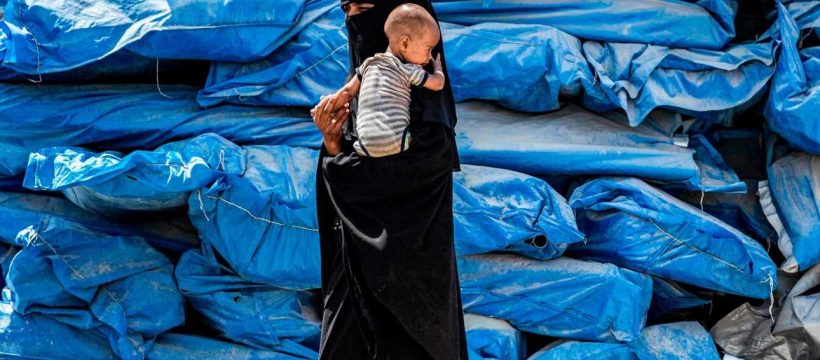BRIT ISIS fighters kids stuck in Syria will not be brought home by the government.
Sajid Javid made the decision as one of his last acts as home secretary before being handed the keys to number 11 by Boris Johnson last month.
He decided it was too risky to send out military or civilians to rescue kids and babies and minors with British citizenship from camps in northern Syria.
The new Chancellor also sought advice about the legal implications of repatriating the British children of jihadis and Isis brides while in his old job, The Times reports.
Concerns had reverberated around the Home Office that such a move could provide a legal route for parents who have had their citizenship revoked to return under human rights laws.
Not all children born to a mother or father from the UK necessarily hold the right to British citizenship.
If a parent was stripped of citizenship before their baby was born, or the parent was a naturalised British citizen, rather than one by birth, the child would not automatically be entitled to live in the UK.
The Home Office-led review also looked into what to do with any children rescued from Syria.
Officials looked at options to allow relatives living in Britain to adopt, as well as options provided by the care system.
The fate of British Isis babies gained was brought to the fore after the birth and death of Shamima Begum’s son.
The Bethnal Green schoolgirl, who ran away aged 15 to join Isis in 2015, was found in a refugee camp in February.
UN Security Council's quarterly report on ISIS
In its July 2019 report, the UN Security Council said ISIS is "much stronger than Al-Qaida in terms of finances, media profile and current combat experience and terrorist expertise, and remains the more immediate threat to global security."
It warned that the issue of "foreign terrorist fighters, returnees, relocators and detainees in the conflict zone have become more urgent since the fall of Baghuz.
"Many member states are concerned about the security and humanitarian challenges of the post- 'caliphate' phase."
The UN's update adds that while militarily defeated, ISIS "still has large number of fighters and other supporters in Iraq and the Syrian Arab Republic, and is able to operate freely in many locations and mount regular attacks to show its potency."
In regards to foreign terrorist fighters, "up to 30,000 of those who travelled to the so-called caliphate may still be alive… some will become leaders or radicalisers, including in prisons if they are successfully prosecuted.
"[Wives and children] such as those as al-Hawl [camp] may come to pose a threat if they are not dealt with appropriately."
Heavily pregnant, she had pleaded to come home to Britain and to keep her baby but Britain revoked her citizenship.
Labour said the baby’s subsequent death was the result of a “callous and inhumane” decision by the government, while the international charity Save the Children said his death was “avoidable”.
Mr Javid said that “the loss of any child is a tragedy”, but told the Commons: “I do not want any more children brought into a war zone because their parents think that they will automatically be bailed out.”
About 900 British citizens joined the ISIS caliphate in Syria and Iraq, with as many as 400 thought to have returned as of March this year.
Around 10 per cent have been prosecuted and about 150 are thought to have died.
A government spokesman said: “Since 2011, the Foreign and Commonwealth Office has advised against all travel to Syria, and there is no consular support available to British nationals from within Syria.”
Source: Read Full Article








